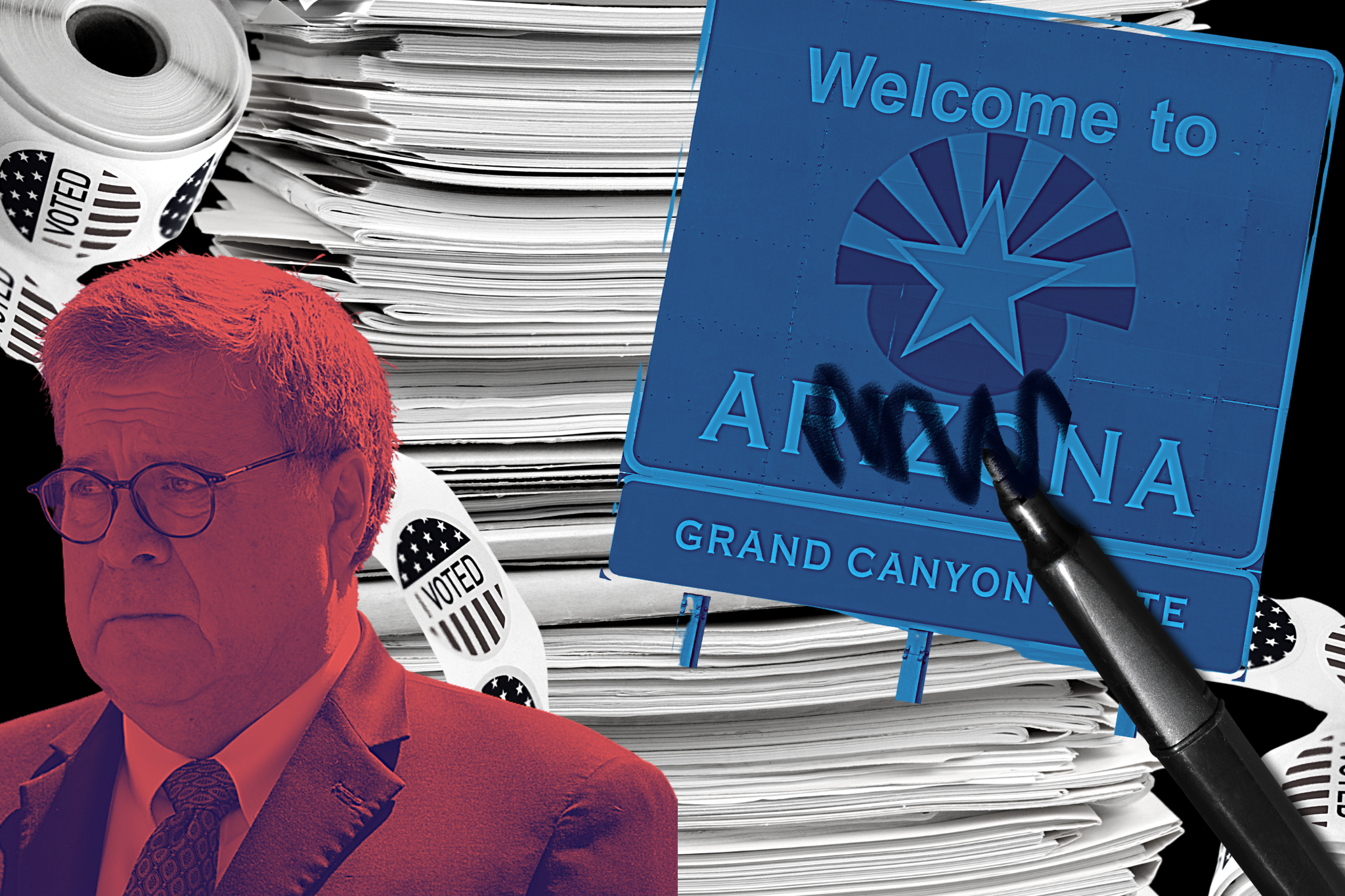Investigations Update: ‘Sharpiegate,’ the Census, and Barr’s ‘Voter Fraud’ Investigations
See the latest in our investigations of the Justice Department’s voter fraud probes, the rush to finish the census, and criminal charges against protesters.

Here’s a look at the investigations our team has been pursuing through public records requests in the last week.
Felony Charges Against Protesters
On Monday, charges were dropped against Kentucky State Rep. Attica Scott, who had been arrested in late September while protesting the decision not to charge the police who killed Breonna Taylor. Scott said shortly after her hearing that many protesters were “still facing bogus, unnecessary charges.” According to reporting in the Intercept, some states have upped the severity of criminal penalties for protesters. We filed records requests to the mayor’s offices in New York City; Washington, D.C.; Portland, Ore.; Kenosha, Wis.; and St. Louis for communications with the Justice Department related to pressing charges against protesters. We also filed a FOIA request to the Justice Department for related communications.
DOJ Voter Fraud Investigations
During a CNN interview on Sept. 2, Attorney General William Barr said that the Justice Department had “a number of investigations” into instances of supposed voter fraud. Just last week, Barr issued a memo authorizing federal prosecutors across the country to pursue politically charged allegations of voting irregularities before official results are certified. Election experts and career prosecutors have repeatedly confirmed that there is no evidence that widespread voter fraud took place during the 2020 election. We filed FOIA requests to the Department of Justice for agency officials’ communications with non-government entities and for records of directives pertaining to such investigations. We also requested DOJ communications with Leonard Leo, a conservative legal activist reportedly involved in voting-restriction efforts.
Arizona Rep. Townsend’s ‘Sharpiegate’ Communications
In the days after the presidential election, false claims circulated online that Arizona ballots marked with Sharpie markers had been invalidated. Although Arizona election officials confirmed that voting with a Sharpie would not impact a voter’s ballot, the story continued to gain traction under the hashtag “Sharpiegate.” Arizona state Rep. Kelly Townsend has since bolstered the conspiracy theory on her social media, asking voters to come forward if they had been forced to use a Sharpie on their ballots. We sent records requests to the Arizona House of Representatives for emails and text messages sent or received by Townsend or her chief of staff regarding the conspiracy or Arizona’s voting tabulation process.
Complaints Filed by Census Takers
Earlier this month, two census takers told the Associated Press that they had been pressured to fabricate information about households they hadn’t visited while conducting the count in the weeks before the census deadline. Advocates concerned about irregular data collection had previously challenged the Census Bureau’s decision to end counting efforts on Sept. 30, a month early, leading to a Supreme Court case and the final deadline of Oct. 15. We filed a FOIA request to the Commerce Department Inspector General for records reflecting tips or complaints made by census takers regarding data falsification.
Cabinet Officials’ Pre-Election Trips to Swing States
Ahead of the election, several members of Trump’s cabinet — including Agriculture Secretary Sonny Perdue, EPA Administrator Andrew Wheeler, Energy Secretary Dan Brouillette, Interior Secretary David Bernhardt, and Health and Human Services Secretary Alex Azar — took a number of trips to swing states, often engaging in partisan activities in potential violation of the Hatch Act. We filed FOIA requests to multiple federal agencies for any records of expenses from these trips.
Georgia Health Care
Earlier this month, the Centers for Medicare and Medicaid Services (CMS) and the Treasury Department jointly approved Georgia’s Section 1332 waiver, which allows the state to transition away from HealthCare.gov to a state-based program that will host a private-sector marketplace. Critics of the waiver say it undermines the Affordable Care Act and makes consumers more vulnerable to predatory health-care plans. We sent FOIA requests to CMS and the Treasury for officials’ emails about Georgia’s waiver.